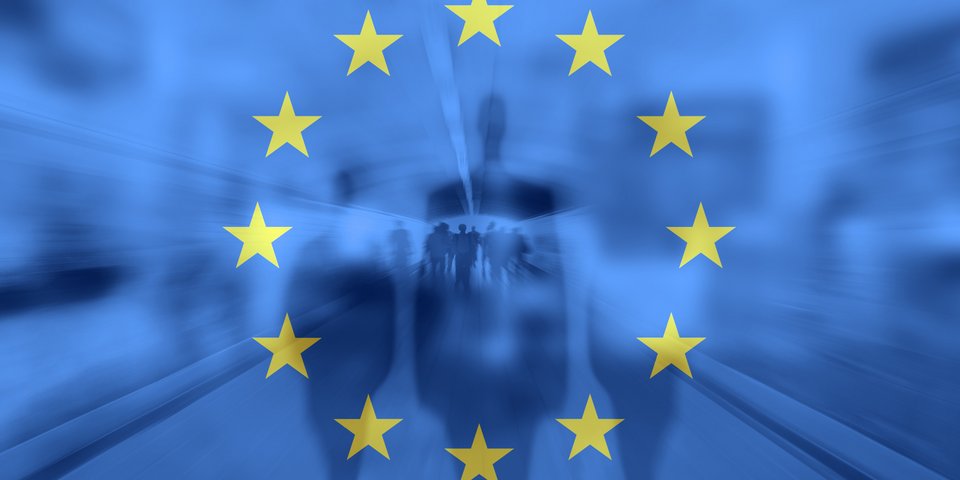 iStockphoto/TheaDesign
iStockphoto/TheaDesignMeeting of the EU Ministers for health and social policy
Various topics related to statutory social insurance were on the agenda.
MS/IW – 06/2017
The Employment, Social Policy, Health and Consumer Affairs Council met on 15-16 June 2017 in Luxembourg for the last time under the Maltese Presidency of the Council. The Ministers for health and social policy agreed, among other things, to the following conclusions.
Voluntary cooperation between health systems
The Maltese Presidency considers it necessary for there to be closer cooperation at EU level due to the significant challenges facing the health systems of the EU Member States. This initiative had already sparked lively discussion in the lead up to the Council meeting. Germany, in particular, had a critical attitude to this because the rights of the Member States to organise their own health systems must not be jeopardised (Article 168 (7) TFEU). The EU Health Ministers finally agreed on measures and objectives set out in the Council’s conclusions to encourage voluntary cooperation between the health systems. It was agreed that patients and health care professionals could benefit from stronger cooperation. This could especially improve access to treatment for patients with rare diseases.
In concrete terms, there is to be better cooperation on pricing in the pharmaceutical sector and on combating the exodus of health care professionals. In particular, the exchange of information on national pricing and reimbursement policies as well as pricing agreements is in the interest of many Member States as it should ensure better access to medicinal products. Other topics that could be added if necessary include the European Reference Networks, e-health, resistance to antibiotics and Health Technology Assessment.
Battle against childhood obesity
The battle against childhood obesity was also a major concern of the Maltese Presidency. The increased prevalence of childhood obesity poses a major health challenge in many Member States. 60 percent of overweight children are likely to become overweight adults. This increases the risk of a number of diseases such as diabetes, asthma, high blood pressure and cardiovascular diseases. In their Council conclusions, the Health Ministers call on the Member States to implement cross-sectoral measures that address both a lack of physical activity and an unhealthy diet. Day-care centres and schools should be better utilised by encouraging physical activities in these facilities as well as in sports and leisure clubs. In addition, the marketing of unhealthy foods with a high sugar or fat content should be reduced or banned. Bulgaria has already announced that it intends to go deeper into this issue under its Presidency in the first quarter of 2018.
Protection against carinogenic substances
The Ministers for Employment and Social Policy also agreed on new limits to protect more than 4 million workers against exposure to carcinogens or mutagens in the workplace.
In January this year, the European Commission proposed amending the Directive on carcinogens and mutagens (Directive 2004/37/EC) by introducing stricter workplace exposure limits or other measures for seven additional carcinogenic substances. The seven carcinogens and mutagens covered by the Directive include inter alia mineral oils which have previously been used in internal combustion engines. In addition to stricter exposure limits, a skin notation will be added to five carcinogens. A skin notation will also be introduced for another two carcinogens regardless of limit values. The proposals are based on in-depth analysis of each individual chemical substance and on contributions from scientists, employers, workers, representatives from the Member States and labour inspectors.
During negotiations in the Council of Ministers, some Member States found that the individual limits were not strict enough. However, the Ministers for Employment and Social Policy were able to agree in their meeting on specific limits to protect more than four million workers against exposure to carcinogens or mutagens in the workplace.
The outcomes of the general approach will now be incorporated into the ongoing informal negotiations between the European Parliament, the European Commission and the Council (‘trialogue’).
Estonia to assume Presidency of the Council from July 2017
Estonia will take on the Presidency of the Council in July 2017 for a period of six months. The presidential programme will focus on the harmful consumption of alcohol and on digital developments. Greater effort is to be made to tackle the harmful use of alcohol in order to curb alcohol abuse in the EU. The other issue to be addressed is e-health and the access and handling of personal health data. The Estonian Presidency is seeking to reach conclusions on both topics.
